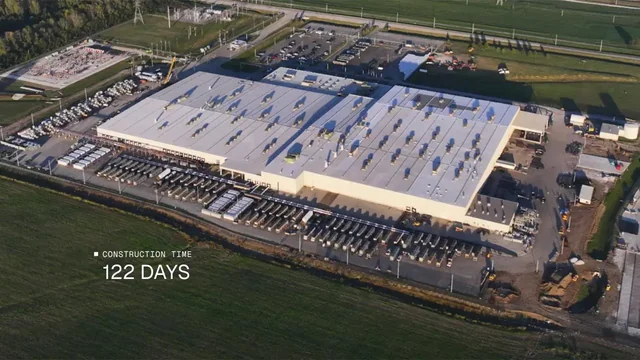xAI Reveals Plan for Massive Overseas Power Plant to Fuel AI Expansion

Introduction
Elon Musk’s AI venture, xAI, is building a dedicated overseas power plant designed to run a staggering 1 million GPUs—an announcement that signals a major escalation in the quest for scalable artificial intelligence infrastructure and energy solutions[8]. This aggressive move to shore up computational power highlights the industry's growing energy demands and residual strain on local grids.
Why an Overseas AI Power Plant?
The rise of generative and agentic AI—demanding ever-larger models and increased training cycles—has created an urgent need for high-density, reliable energy sources. Musk asserts that current U.S. energy infrastructure is unable to support the computational load required for next-generation AI at scale. By constructing a massive offshore plant, xAI can circumvent existing limitations, ensure uninterrupted GPU operation, and minimize impact on local utility networks[8].
- 1 million GPUs will offer unprecedented parallelization for model training.
- Expected to deliver continuous power, supporting around-the-clock AI experimentation and deployment.
Industry Impact and Comparisons
xAI’s project dwarfs typical corporate data centers and marks a sharp contrast with current industry practices, where companies like Microsoft and Google struggle to secure reliable energy for rising AI workloads. This move positions xAI ahead in the competition to develop powerful, scalable AI, while also drawing attention to the environmental and infrastructure bottlenecks looming over the sector[8].
- Most hyperscale data centers currently operate with substantially fewer GPUs.
- xAI’s facility could serve as the backbone for future AI platforms capable of more complex multimodal and reasoning tasks.
Challenges and Controversies
This development raises important questions regarding energy sourcing, sustainability, and ethical use. Critics are concerned about potential ecological impact abroad and call for greater transparency over grid independence and carbon footprint. Meanwhile, Musk points to the necessity for alternate solutions as AI becomes integral to strategic and commercial endeavors worldwide[8].
Conclusion and Future Outlook
The xAI power plant promises to redefine what is possible in large-scale AI deployment. Experts suggest it may prompt a wave of private AI energy infrastructure investments, force policy makers to reevaluate energy regulation for AI, and set new benchmarks for operational scale and computational ambition. If successful, it may power breakthroughs across productivity, research, and creativity, but it will also keep sustainability at the forefront of industry debate.
As AI evolves, so too must the supporting infrastructure—and xAI’s ambitious project is a bold step into that future.
How Communities View xAI’s Overseas Power Plant Initiative
The announcement of xAI’s plan to build an overseas power plant for AI caused immediate waves across X/Twitter and Reddit. The debate centers on scale, sustainability, and Musk’s influence in tech infrastructure.
-
Tech Enthusiasts (Estimated 45%): Users like @nextAIengineer and participants in r/MachineLearning are excited about the technical leap and see it as proof of AI’s exponential growth. Posts referencing the '1 million GPU' figure attract hundreds of retweets, with some comparing it to historic leaps in supercomputing capacity.
-
Sustainability Critics (Approx. 30%): Discussion threads on r/Sustainability and frequent tweets by @greencompute warn about ecological impact and demand details on renewable sourcing and long-term climate consequences. Industry experts like @TechtechCarr have weighed in, urging Musk to prioritize transparency.
-
Skeptics & Infrastructure Analysts (Nearly 20%): Some, including influencers in r/technology and @energy_watch, argue the project may be overhyped or logistically complex, raising doubts over feasibility and international energy regulations.
-
Musk Fans (About 5%): Loyalists on X/Twitter and r/elonmuskcredit see the move as a brilliant workaround to regulatory gridlocks, praising Musk's relentless drive to push boundaries.
Overall sentiment is cautiously optimistic, with most agreeing that the project brings urgent focus to the infrastructure limits of advanced AI, while few see it as an immediate panacea for the industry's energy bottleneck.